I Wake Up Streaming | October 2022
Movies
In this edition of “I Wake Up Streaming,” novelist William Boyle rounds up his top streaming picks for the month of October. The column’s name is a play on the 1941 film I Wake Up Screaming, starring Betty Grable, Victor Mature, and Carole Landis. While the film’s title hits a pleasing note of terror and despair, changing that one letter speaks to the joy of discovering new films and rediscovering old favorites, as well as the panic that comes with being overwhelmed by options.
Remember My Name (Tubi)
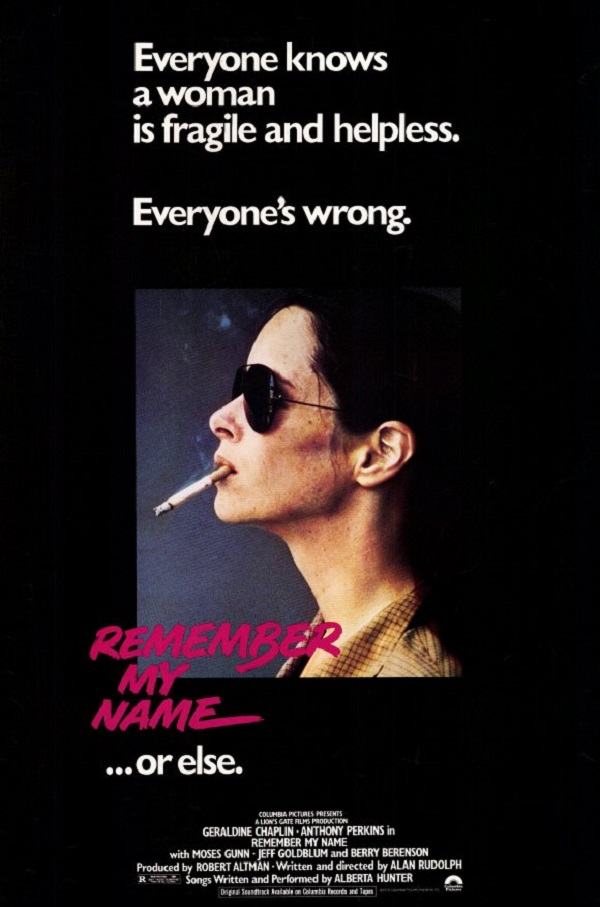
It’s October and I don’t have a horror movie to write about, so I’ll let Alan Rudolph’s Remember My Name from 1978 serve that purpose. It edges up against being quantifiable as psychological horror, but every time you think you know where it’s headed, it does something unconventional. Geraldine Chaplin plays Emily, recently released from prison. She arrives in Los Angeles, moves into an apartment, gets cozy with the landlord, lands a job at a store run by the son of a prison pal, and begins stalking a married construction worker, Neil (Anthony Perkins), and his wife, Barbara (Berry Berenson). Chaplin moves through the world of the story like a ghost or a spirit, upending Neil and Barbara’s seemingly peaceful existence. This has generally been difficult to see, except for occasional screenings at repertory theaters in New York or Los Angeles; it also pops up on TCM once a year or so. Somehow, though, it’s currently on Tubi (which continues to be the most exciting streaming service around), and it looks great. A restoration? I’m not sure. Must be. Richard Brody called Remember My Name “a modernist melodrama” which “suggests a quiet revolution in storytelling.” Chaplin shines—her Emily is so vulnerable and eerie and impulsive, always seeming to be on the verge of killing someone or hugging someone. The sound’s got that layered, multitrack Robert Altman quality (Rudolph was, after all, Altman’s protégé). Beautiful Tak Fujimoto cinematography and a killer Alberta Hunter soundtrack also take center stage. Terrific supporting performances abound—Perkins, Berenson, Moses Gunn (as Emily’s landlord), young Alfre Woodard (as a co-worker suspicious of Emily), and Jeff Goldblum (as the goofy head honcho at the store). Rudolph’s the absolute king of hitting weird beats and taking you unexpected places. Full of memorable mirrors and couches and cars and bars that etch the landscape of Rudolph’s L.A. of the soul. I wish we’d gotten a prequel called Spider Monkey (a desire which will make sense to you only by the movie’s third act). One of my favorites from one of my favorite filmmakers.
Nothing Compares (Showtime)
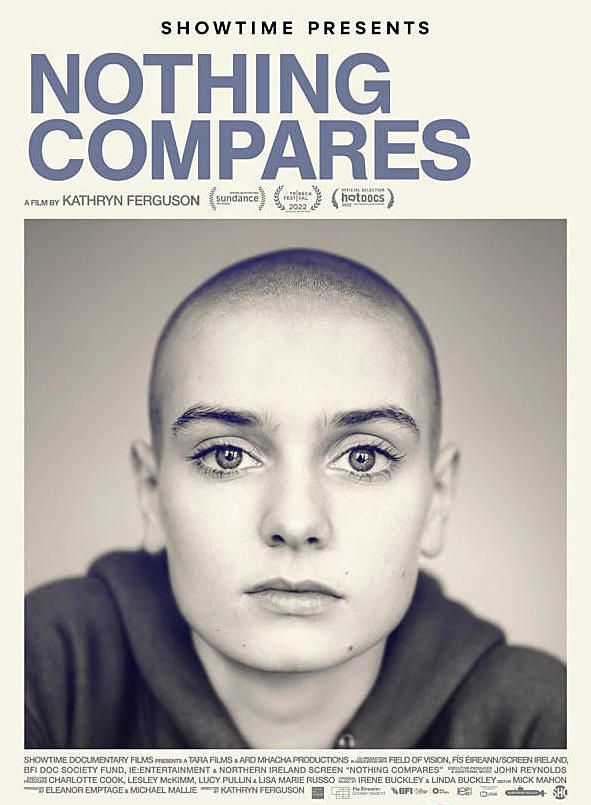
A haunting and powerful portrait of one of my biggest heroes, Sinéad O’Connor. The Prince estate wouldn’t let director Kathryn Ferguson use “Nothing Compares 2 U,” O’Connor’s most major hit, written by Prince, in the film, so the title gets shortened and one of the key sequences is played without the song. It’s a very strange thing to witness, almost as if a major player’s face is blurred. I read and loved O’Connor’s memoir, Rememberings, last year. Held up against the book, Nothing Compares feels incomplete, or at least like the beginning of something much longer, ignoring everything after her performance at the Bob Dylan anniversary show in 1992 (beyond highlighting her influence on a changing Ireland and a new wave of outspoken artists, which makes for a moving coda). That’s thirty years of a complicated and messy and amazing life—including many killer records and her beautiful memoir—that don’t even rate a mention. Still, the doc is very solid, focusing on O’Connor’s early days, her ascent to stardom, and her choice to renounce her fame in the name of speaking truth to power. It’s difficult to imagine how Ferguson might’ve approached telling O’Connor’s whole story in ninety-five minutes, so I’m just damn thankful this exists.
Harry & Son (Tubi, Prime Video, Paramount Plus)
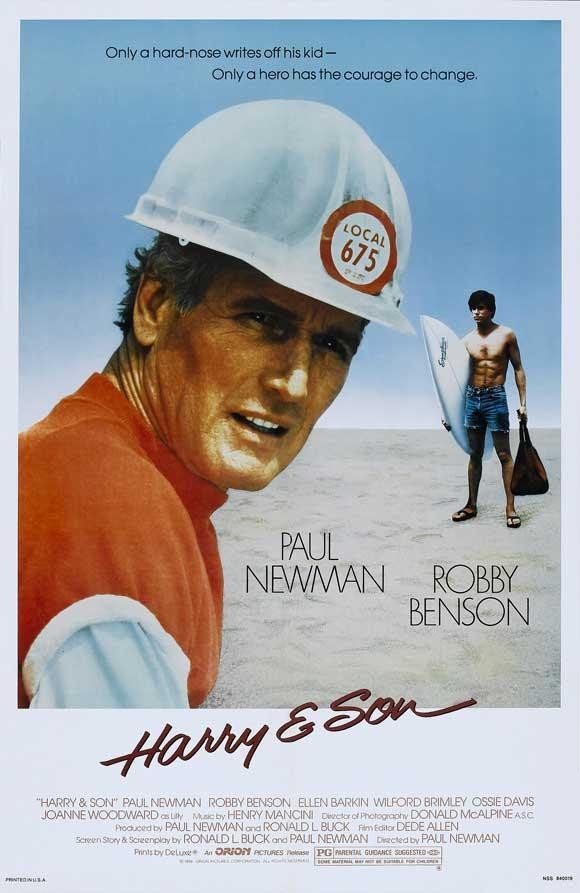
This one’s been on my radar for a while, and I finally watched it after gulping down Ethan Hawke’s excellent Paul Newman and Joanne Woodward documentary series on HBO, The Last Movie Stars (highly recommended). Harry & Son, directed and co-written by Newman, was viewed as a disaster by a lot of folks (see Roger Ebert’s scathing one-star review). It’s Newman’s most personal film, a reckoning with the loss of his son Scott several years prior to its release. Sure, it’s a bit of a mess, but it’s absolutely my kind of mess. Newman’s terrific both in front of and behind the camera. He’s tangling with big questions about fathers and sons here, dismantling myths of masculinity. In Newman’s acting filmography, Harry & Son falls between The Verdict and The Color of Money, and he brings the same kind of energy to Harry Keach as he does to Frank Galvin and Fast Eddie Felson, full of shame and regret and longing and uncertainty, a man unable to communicate effectively with the people who want to help him. Woodward is fucking electric in her few scenes. Great supporting turns by Ellen Barkin, Wilford Brimley, Ossie Davis, and Morgan Freeman. I wasn’t sure about Robby Benson—he seemed to have stumbled out of a mediocre made-for-TV movie while the performers around him were acting their asses off—but he sold me by the end in his tenderest scenes with Newman. This one’s not gonna be for everyone—it hits weird beats and has weird rhythms—but it’s really stayed with me.
Nico, 1988 (Tubi, Prime Video, Kanopy)
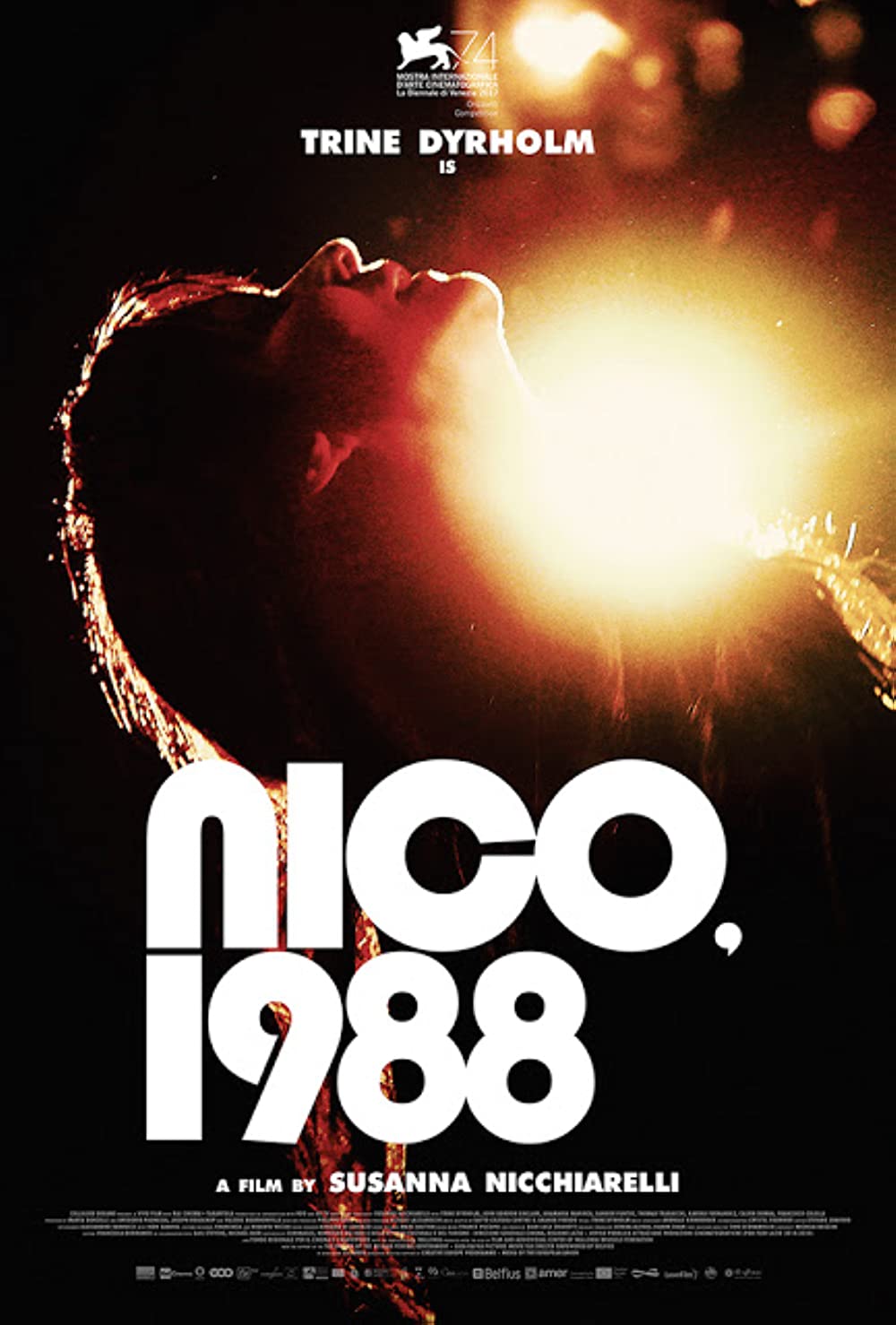
As I said in last month’s column, Baz Luhrmann’s Elvis wasn’t my thing. I was partially disappointed because I saw the potential for a great movie in the Vegas part. I’m not generally big on biopics in any form, but I tend to like them when they focus on a specific period of the artist’s life, ignoring the successful times in favor of the troubled later years. Susanna Nicchiarelli’s Nico, 1988, which I’d put off watching until recently, is an unconventional biopic about Christa Päffgen, aka Nico, set during her Manchester days and her final European tour. Approaching fifty, Nico is a junkie whose superstar days are in the rearview mirror when her new manager coaxes her to hit the road and tour in support of her recent album with a young band. She also longs to reconnect with her estranged son, who has grown up with his father’s parents and is a budding artist. I’d heard some very mixed things about this movie, which is why I put it off, but I absolutely loved it. Trine Dyrholm gives an incredible performance as Nico. Did she win any awards? She should’ve won a million. The movie manages to be funny, dark, melancholy, gentle, and it hits some totally unexpected notes. It came out about five years ago, and I’m bummed I held off until now. It also serves as a good antidote to Baz’s Elvis if you, like me, would rather engage with something darkly comic and depressing than watch multi-colored confetti shoot out of a cannon for three hours.
Big Sur (Prime Video)
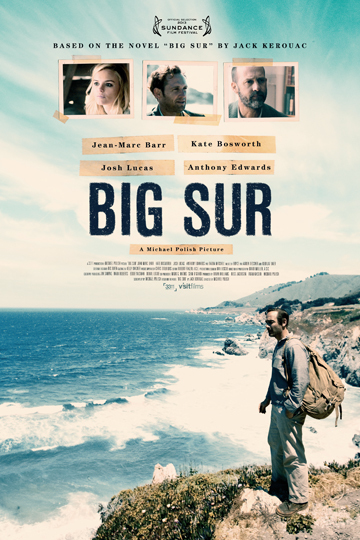
I’ve been wanting to revisit Michael Polish’s 2013 adaptation of Jack Kerouac’s 1962 novel for a while and noticed it was on Prime. I liked it the first time I watched it and liked it even more this time through. After Visions of Gerard, Big Sur is the novel of Kerouac’s I’ve gone back to the most and the one I think is probably his best. He wrote it over a ten-day period in 1961, and it’s a great representation of his brand of humanistic searching. The story finds Kerouac on the lam from celebrity—retreating to Lawrence Ferlinghetti’s cabin in Big Sur and getting battered by loneliness until he must once again seek adventure and trouble. Adapting Kerouac’s work can’t be an easy task, especially a book like this that relies so heavily on untangling the peculiar and lovely rhythms of his interiority. Polish does a damn solid job. His Big Sur is poetic and melancholy, full of anguish and brimming with love. This is the most successful movie ever made from one of Kerouac’s books or even about the Beats. Jean-Marc Barr is perfect as Jack, haunted and frightened and yearning. Those sad eyes. The abundant voiceover is necessary, and Barr is great with Kerouac’s breathless prose, really capturing his cadence. I can’t think of many other movies not made by Terrence Malick that use voiceover so effectively—those are my favorite sequences here. A killer score by the Dessner Brothers, too. A movie that feels—as the book does—bright with life, hungry for knowledge, and afraid of an uncertain future.
William Boyle is the author of the novels Gravesend, The Lonely Witness, A Friend Is a Gift You Give Yourself, City of Margins, and Shoot the Moonlight Out, all available from Pegasus Crime. His novella Everything Is Broken was published in Southwest Review Volume 104, numbers 1–4. His website is williammichaelboyle.com.
More Movies


